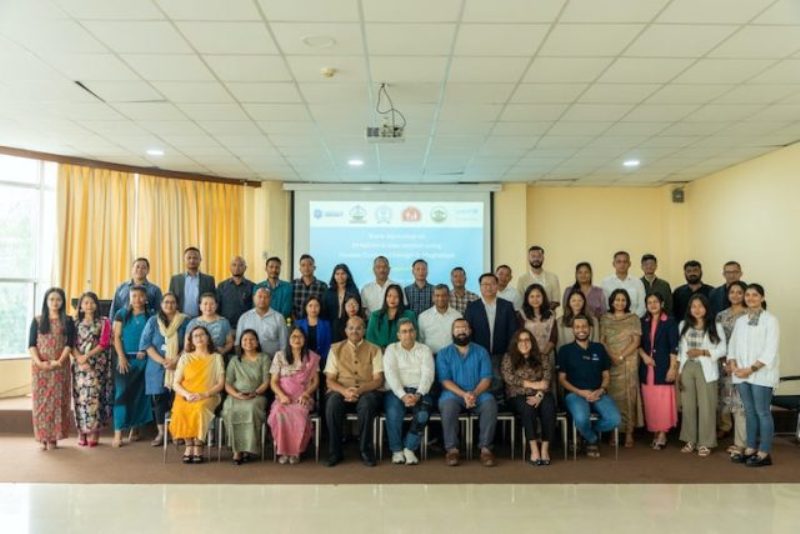SHILLONG: The Meghalaya government, in collaboration with UNICEF, Blockchain for Impact (BFI), and IIT Mumbai, has hosted a workshop on Human Centred Design (HCD) in the state.
During the workshop, trainings were imparted to district health associates (DHAs) posted in all the districts of Meghalaya.
The training of the DHAs at the workshop focussed on the basics of health systems, data systems, multi-sectoral programming, and data analytics considering the health priorities of the state government.
During the workshop, teams from the National Health Mission, UNICEF, and the State Health Systems Resource Centre consultant (SHSRC) also shared various data to help the associates understand gaps on the ground and priority areas of the state government.
The workshop marks the beginning of a fellowship programme that focuses on the deployment of social design fellows for problem-solving in public health at the district levels.
The HCD approach also aligns with UNICEF and Blockchain For Impact’s (BFI) programme ‘The India Health and Climate Resilience Fellowship (IHCRF)’ that focuses on developing local sustainable solutions under the aegis of the state government.
The IHCRF aims at building primary health care using HCD featuring data, innovation and multi-sectoral approaches to augment health systems.
Teams from NHM, UNICEF and SHSRC also shared various data sets to help the DHAs understand gaps on the ground and priority areas that are of focus for the state of Meghalaya.
Addressing the workshop, Ramkumar, MD, NHM and Secretary of Health and Family Welfare Department said, “State capacity is essential to enable our people to be fully productive. The HCD approach will empower our fellows to design and implement strategies that are tailored to the unique needs of our communities, addressing critical issues in health, nutrition, and rural development.”
He also emphasized the role of the fellows in impacting the broader social determinants of health, including rural development, the environment, and intersectional aspects such as the socio-economic status of the community.
Nagakarthik, VP of Blockchain For Impact, said, “By integrating human-centered design with cutting-edge technologies, we can create sustainable health solutions that are both effective and scalable. This fellowship program is a pivotal step towards achieving that vision.”
Luigi D’Aquino, Chief of Health, UNICEF, India, said, “We are confident that the HCD approach will lead to innovative solutions that will significantly improve public health outcomes in Meghalaya.”
Several stakeholders, including government officials, health experts, and community leaders, attended the event.















